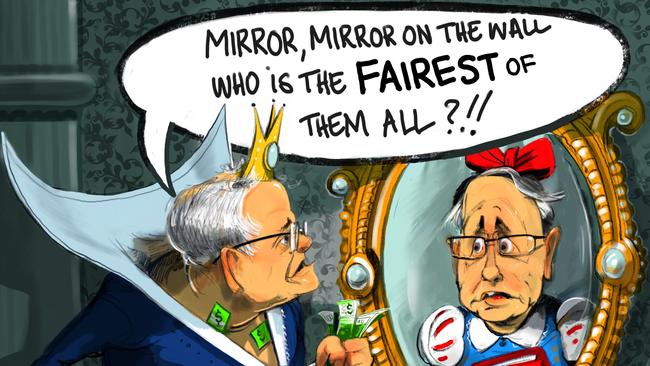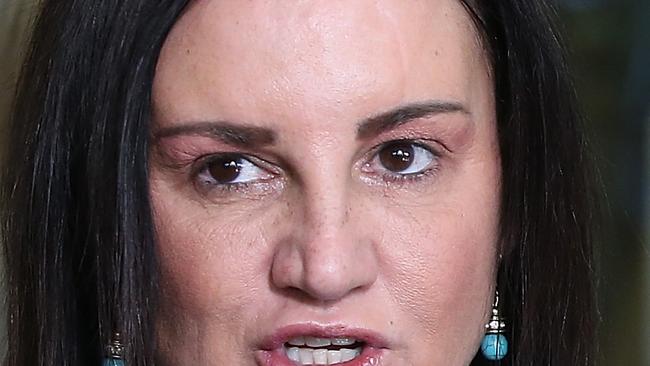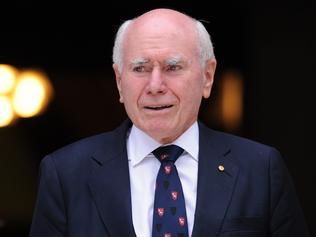Budget 2017: ScoMo steals Labor tax dream
The government will impose $23bn in tax hikes on banks, workers and foreign investors in a bid to ‘reset the budget’.

The Turnbull government will impose $23 billion in tax hikes on banks, workers and foreign investors in a bid to “reset the budget” and turn the tables on Labor, sparking a ferocious backlash last night amid fears it could weaken the financial system.
The surprise tax grab will hit almost every Australian worker through a 0.5 per cent increase in the Medicare Levy from July 2019, with the impact likely to come after the next federal election.
• LIVE COVERAGE: Budget 2017 reaction
Picking a fight with the five biggest banks, the government will ask the Senate to approve a new levy that starts six weeks from now, leading to predictions it will be passed on to customers.
Scott Morrison argued last night that there was no reason for consumers to bear the brunt of the reform, declaring “cry me a river” when asked about the cost pressures on the banks.
At about $1.5bn a year, the levy will collect 5 per cent of the after-tax profits from the ANZ Group, Commonwealth Bank, National Australia Bank, Westpac and Macquarie Group, the banks with liabilities above the $100bn threshold set for the new policy.
With gross debt set to peak at more than $663.8bn in 2020, Mr Morrison last night moved to raise the official debt limit. “I direct that the maximum total face value of stock and securities that may be on issue is $600bn,” he said in an instruction that will need to be increased within three years.
The government is staging a dramatic policy shift to blunt Bill Shorten’s fierce campaign against “unfair” spending cuts, using the budget to drop a divisive freeze on Medicare rebates, promise more money for schools, and abandon “zombie” savings that were blocked in the Senate.
The Treasurer described the revenue hikes as “basically a Senate tax” to pay for parliament’s veto over unpopular spending cuts, but business leaders damned the move for hurting the companies, their employees and more than 2.6 million shareholders.
Former Future Fund chairman and Commonwealth Bank chief David Murray said the levy was “bad policy” that would “weaken the structure” of the banking system. Australian Bankers Association chief Anna Bligh, who took the position in February in a move that surprised Mr Morrison and other cabinet ministers, attacked the “naive and misguided” levy as a move that would cost jobs and growth in the entire system.
Investors wiped $14bn off the value of the major banks yesterday, ahead of the confirmation of the levy at 7.30pm, highlighting the cost for those who own bank shares directly and indirectly through their superannuation funds.
The new impost is part of a wider move to neutralise the Opposition Leader’s demands for a banking royal commission, hitting the sector with a more powerful forum to hear customer complaints and imposing harsh penalties on individual executives who are held responsible for harming customers.
Business Council of Australia chief executive Jennifer Westacott called the bank levy a “dangerous precedent” and a form of double taxation, while Australian Industry Group chief Innes Willox expressed concern that a future government could use it to justify similar moves on other sectors.
The revenue hikes are central to the government’s ambition to scale back deficits over the next four years and post a $7.4bn surplus in 2020-21 — with more than half of that surplus coming from Future Fund earnings in that year.
They won early support from Senate crossbenchers last night, with Nick Xenophon signalling his backing for the bank levy and the Medicare Levy increase.
The Treasurer described the budget as a “responsible” document based on the principles of “fairness, security and opportunity”, but he faced questions over how the Medicare Levy increase squared with his claim to ease the cost of living on workers.
“Above all, this is an honest budget,” Mr Morrison said.
“It is honest about our challenges and opportunities. It does not pretend to do things with money we do not have.’’
Wealthier workers will bear the greatest burden from the increase in the Medicare Levy, which will see a worker on $100,000 paying $500 more each year.
The levy will raise more revenue in a single year than the May 2014 budget deficit levy of 2 per cent on wealthier workers, which sparked a storm of protest from the Liberal Party base.
While the deficit levy only applied to earnings of more than $180,000, the increase in the Medicare Levy from 2 per cent to 2.5 per cent applies to all of a worker’s earnings. As a result, a worker on $200,000 a year is likely to pay $1000 more in Medicare levies from 2019, more than the $400 reduction from the end of the temporary deficit levy.
After years of denying a “revenue problem” in the budget that justified tax hikes, the government will try to stare down objections about the Medicare Levy increase by arguing that it will fill a funding gap in the National Disability Insurance Scheme — and that all Australians should help.
Property investors will lose concessions worth $1bn over four years — such as the ability to deduct travel expenses for trips to inspect their rental property — but the government has rejected wider changes to negative gearing or capital gains tax rules on investment properties.
Mr Morrison avoided any pledge to deliver the $7.4bn surplus, calling it a projection rather than a promise, but he said the budget should be “well received” by the agencies that determine the commonwealth’s AAA credit rating. Moody’s Investor Services said last night it rated Australia’s fiscal strength as “very high” in the wake of the budget.
The deficit for this financial year will be $37.6bn, slightly deeper than the $36.5bn outlined in the mid-year update last December, but total deficits over the four years of the budget forward estimates will be smaller.
While the December update assumed deficits of $94.9bn over the four years to June 2020, this falls to $90.7bn in last night’s budget. It shrinks to deficits of $45.9bn over the four years to June 2021, assuming the path to a surplus.
The government will rely on a $75bn infrastructure program over the coming decade to claim a pathway to a stronger economy, with Mr Morrison promising “better days ahead” from the improving conditions. “This budget is about making the right choices to secure the better days ahead,” he said. “Our choices are based on ... fairness, security and opportunity.”
Treasury has trimmed this year’s growth forecast from 3 per cent to 2.75 per cent, due to Cyclone Debbie’s impact on Queensland, but the growth recovers over the subsequent three years. In a trend that undercuts the government’s message on jobs and growth, Treasury forecasts an increase in unemployment from 5.5 per cent to 5.75 per cent this year and next.








To join the conversation, please log in. Don't have an account? Register
Join the conversation, you are commenting as Logout